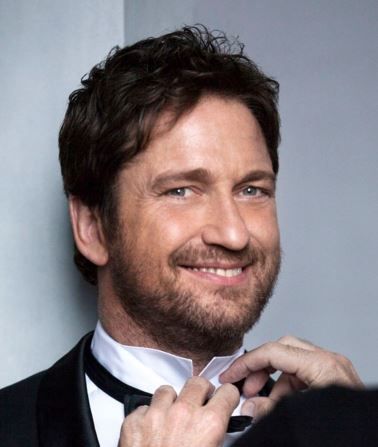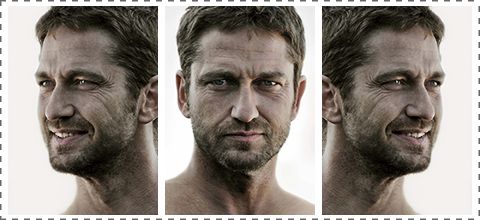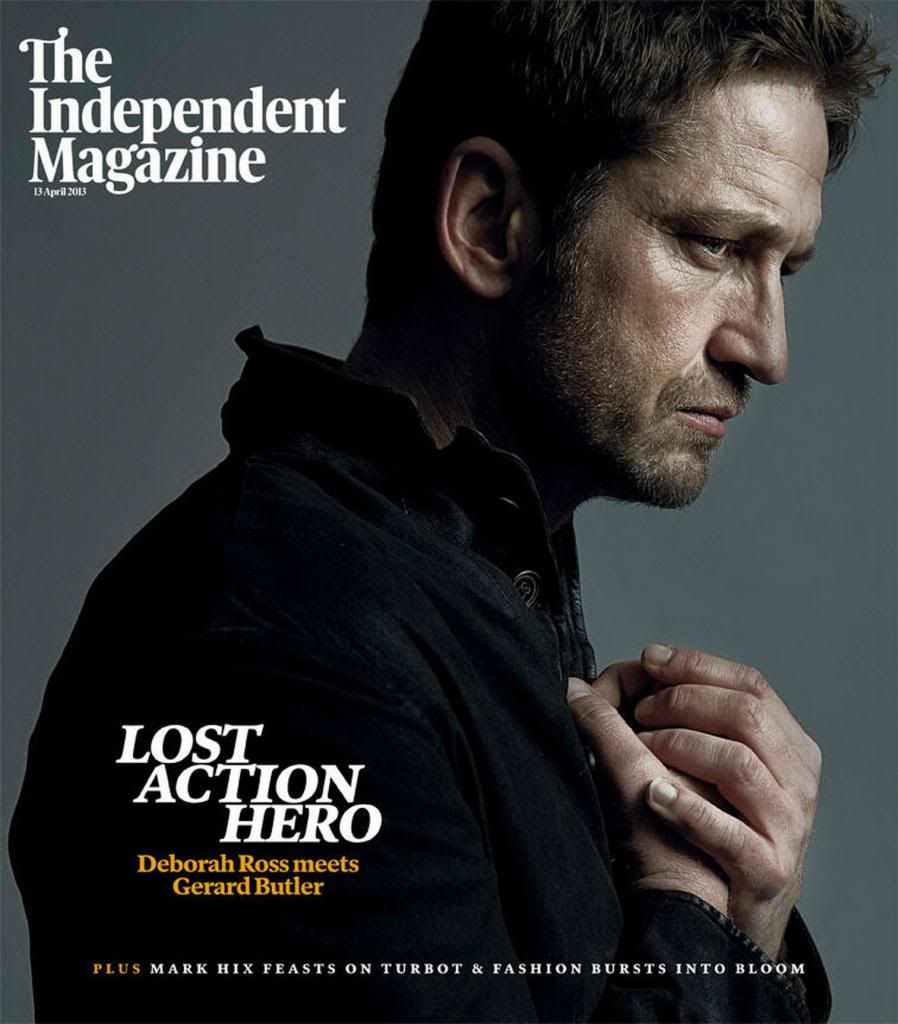Post by elenoire on Apr 12, 2013 11:32:51 GMT -5
www.numetro.co.za/content/gerard_butler_aaron_eckhart/
Is it difficult producing a blockbuster such as ‘Olympus Has Fallen’ when you're from an acting background?
It's definitely a clash of ideals, because, as an actor, you're always fighting for more space, more scenes, and as a producer you have to think of the financial constraints and be willing to cut scenes and look at the situation from 30 000 feet up, so yeah, and then there's also the fact that you're wearing two hats, so it's double duty. There's a lot of work in producing, and then when you're playing an action role there's a lot of work in that, because it's not just a performance, I had to do all the gym training, and then the fight sequences and work and spend time learning from the Secret Service and working with the SWAT team, so that's already a lot of time taken up, and then I still had to do dialect lessons. We were also always working on the script as well, developing it and trying to make it better and better, so, the work on this movie was often 16-, 17-hour days, a lot of the time. I'm not complaining, because I loved making this movie - it was a joy to solve problems and create solutions and just to see things come together, and then still not know at the end of the day if you're making a piece of crap, but then it turns out that, when you see it all together, you go, “Wow, we really pulled it off.”
Exciting, but also very physically and mentally daunting. What keeps you going 24 hours a day, during a project like that?
Well, making sure that I always get a bit of space, even half an hour for yourself, just to chill, and rest your mind. Eat well and drink a lot of water, and, it sounds crazy to say, but sleep when you can. To be honest, I find that when you're in flow and you're doing something you're enjoying that's challenging and is maybe your calling, then you don't notice; you don't need the rest as much. You find that you've worked a lot of hours and you haven't even noticed it, because you're engaged in something and not thinking about other problems in your life, you're just focused on that.
What inspired you to become an actor?
I think many different things, a lot of different movie performances and actors. There was Steve McQueen and Paul Newman and even, weirdly enough, David Niven—just moments where a performance or a story hit you, whether it's a fantastical story or a war story, or a comedy or a drama, I mean, I remember walking out of Ghostbusters of all things and punching the windscreen in my car and just thinking “I wanna do that! I wanna be in that cool story! I wanna make people laugh, I wanna live in that world. A lot of it was about escaping into other worlds and all this has become a reality for me.
Do you have any qualms when it comes to playing bad guys?
No, I think, typically when you're a leading man, you have to be willing to take on a bad guy role, because your agent or manager could advise you that that could affect people's ability to buy you as a hero after that. I don't think Sean Connery ever changed his accent or played a bad guy role, but I've done it. I did it in Law-Abiding Citizen and I'd do it again, because, to me, I think it's all about being dynamic and trying different things, and often the bad guy roles are way more fascinating than the heroes.
Were you surprised, then, when you played in 300, at the way the “This is Sparta” meme took off?
— Clive Henry Webber (@clivewebber) April 8, 2013
Yeah, very much so. Because, when I did it, I actually did it in many different ways, I whispered it, I did it straight-forward, and eventually we did it a few different ways and then we cut and we were about to move on, but I went back to Zack and said, “Listen, why don't we try one more?” and I thought, I'm just going to go for it, I'm just going to give it every bit of power and passion that I can. And I did it, and when I turned around, I could see that a lot of the extras and the stuntmen were covering smirks, thinking “well, that was kinda ridiculous,” and I went back to Zack and I said, “Okay, well, that was too much” and he said “Yeah! But it was awesome!!” I still thought it was too much, and then I saw it in the movie and it was just perfect, but even then I didn't realise how much that slogan would be taken on.
Which of your past projects holds the most meaning for you and why?
— Jaceldaw (@jaceldaw) April 8, 2013
There are a few, because I always try and do projects, whether they win or lose, that mean something to me. Not always, but they all have to have a message, and the stronger the message and the more personal appeal it has to me, the more it means to me as a result. I've done a few movies that have been very meaningful to me, for instance 300 was one of them, because I just loved that message of courage and honour and unity and unbridled, absolute razor-focus on one's principles and being willing to die for them. Just, the mythical power and heroism in that story—I felt it in every fibre of my body. I feel that when they put that movie together, all of the actors and all the performances came together, and it did that to people all over the world; that it really had such a powerful impact... It's an indescribable feeling to be a part of that. Then I made a movie called Machine Gun Preacher that, to be honest, not a lot of people saw, but, to me, was such a profound, heart-breaking and inspirational drama. A reformed drug-addict and violent man who lived in Pennsylvania and found a new way of life, found God, and ended up in Africa of all places, in the Sudan, building an orphanage to defend the children against this horrific rebel army that basically kidnaps them, cuts limbs off them and forces them to kill each other and to kill their parents; it defies explanation, what's going on down there. That's a movie I put so much into and it really affected me deeply, so there was that one.
Phantom of the Opera, funnily enough, was a movie that I felt like I spent so much of myself, so many months surrounded by this beautiful, haunting music with these incredible performers and these epic stage settings, feeling the most powerful feelings I'd ever felt of anguish and pain and longing and heartache, so, that movie meant a lot to me as well.
I have to mention one more, I think: Dear Frankie, the story of a little boy who writes letters to his father, only to find out that he's actually writing them to his mother, who's protecting him against his father - and it's such a sweet, human, noble, humble little story and, when people come up to me and the one movie they mention is Dear Frankie, that's almost more exciting to me than a more obvious one like 300, because you have to go out of your way to see a movie like that and it shows that people who do see a movie like that have a lot of sensitivity and humanity.
Is it difficult producing a blockbuster such as ‘Olympus Has Fallen’ when you're from an acting background?
It's definitely a clash of ideals, because, as an actor, you're always fighting for more space, more scenes, and as a producer you have to think of the financial constraints and be willing to cut scenes and look at the situation from 30 000 feet up, so yeah, and then there's also the fact that you're wearing two hats, so it's double duty. There's a lot of work in producing, and then when you're playing an action role there's a lot of work in that, because it's not just a performance, I had to do all the gym training, and then the fight sequences and work and spend time learning from the Secret Service and working with the SWAT team, so that's already a lot of time taken up, and then I still had to do dialect lessons. We were also always working on the script as well, developing it and trying to make it better and better, so, the work on this movie was often 16-, 17-hour days, a lot of the time. I'm not complaining, because I loved making this movie - it was a joy to solve problems and create solutions and just to see things come together, and then still not know at the end of the day if you're making a piece of crap, but then it turns out that, when you see it all together, you go, “Wow, we really pulled it off.”
Exciting, but also very physically and mentally daunting. What keeps you going 24 hours a day, during a project like that?
Well, making sure that I always get a bit of space, even half an hour for yourself, just to chill, and rest your mind. Eat well and drink a lot of water, and, it sounds crazy to say, but sleep when you can. To be honest, I find that when you're in flow and you're doing something you're enjoying that's challenging and is maybe your calling, then you don't notice; you don't need the rest as much. You find that you've worked a lot of hours and you haven't even noticed it, because you're engaged in something and not thinking about other problems in your life, you're just focused on that.
What inspired you to become an actor?
I think many different things, a lot of different movie performances and actors. There was Steve McQueen and Paul Newman and even, weirdly enough, David Niven—just moments where a performance or a story hit you, whether it's a fantastical story or a war story, or a comedy or a drama, I mean, I remember walking out of Ghostbusters of all things and punching the windscreen in my car and just thinking “I wanna do that! I wanna be in that cool story! I wanna make people laugh, I wanna live in that world. A lot of it was about escaping into other worlds and all this has become a reality for me.
Do you have any qualms when it comes to playing bad guys?
No, I think, typically when you're a leading man, you have to be willing to take on a bad guy role, because your agent or manager could advise you that that could affect people's ability to buy you as a hero after that. I don't think Sean Connery ever changed his accent or played a bad guy role, but I've done it. I did it in Law-Abiding Citizen and I'd do it again, because, to me, I think it's all about being dynamic and trying different things, and often the bad guy roles are way more fascinating than the heroes.
Were you surprised, then, when you played in 300, at the way the “This is Sparta” meme took off?
— Clive Henry Webber (@clivewebber) April 8, 2013
Yeah, very much so. Because, when I did it, I actually did it in many different ways, I whispered it, I did it straight-forward, and eventually we did it a few different ways and then we cut and we were about to move on, but I went back to Zack and said, “Listen, why don't we try one more?” and I thought, I'm just going to go for it, I'm just going to give it every bit of power and passion that I can. And I did it, and when I turned around, I could see that a lot of the extras and the stuntmen were covering smirks, thinking “well, that was kinda ridiculous,” and I went back to Zack and I said, “Okay, well, that was too much” and he said “Yeah! But it was awesome!!” I still thought it was too much, and then I saw it in the movie and it was just perfect, but even then I didn't realise how much that slogan would be taken on.
Which of your past projects holds the most meaning for you and why?
— Jaceldaw (@jaceldaw) April 8, 2013
There are a few, because I always try and do projects, whether they win or lose, that mean something to me. Not always, but they all have to have a message, and the stronger the message and the more personal appeal it has to me, the more it means to me as a result. I've done a few movies that have been very meaningful to me, for instance 300 was one of them, because I just loved that message of courage and honour and unity and unbridled, absolute razor-focus on one's principles and being willing to die for them. Just, the mythical power and heroism in that story—I felt it in every fibre of my body. I feel that when they put that movie together, all of the actors and all the performances came together, and it did that to people all over the world; that it really had such a powerful impact... It's an indescribable feeling to be a part of that. Then I made a movie called Machine Gun Preacher that, to be honest, not a lot of people saw, but, to me, was such a profound, heart-breaking and inspirational drama. A reformed drug-addict and violent man who lived in Pennsylvania and found a new way of life, found God, and ended up in Africa of all places, in the Sudan, building an orphanage to defend the children against this horrific rebel army that basically kidnaps them, cuts limbs off them and forces them to kill each other and to kill their parents; it defies explanation, what's going on down there. That's a movie I put so much into and it really affected me deeply, so there was that one.
Phantom of the Opera, funnily enough, was a movie that I felt like I spent so much of myself, so many months surrounded by this beautiful, haunting music with these incredible performers and these epic stage settings, feeling the most powerful feelings I'd ever felt of anguish and pain and longing and heartache, so, that movie meant a lot to me as well.
I have to mention one more, I think: Dear Frankie, the story of a little boy who writes letters to his father, only to find out that he's actually writing them to his mother, who's protecting him against his father - and it's such a sweet, human, noble, humble little story and, when people come up to me and the one movie they mention is Dear Frankie, that's almost more exciting to me than a more obvious one like 300, because you have to go out of your way to see a movie like that and it shows that people who do see a movie like that have a lot of sensitivity and humanity.
















 with you 100% MQC, Sienari and Lylak!!!!! I did not care for this article at all.
with you 100% MQC, Sienari and Lylak!!!!! I did not care for this article at all.  He is giving his time in these interviews mainly to promote Olympus Has Fallen, and she totally trashed it, along with most of his other movies!! She might have thrown in an interesting question or two, but for the most part.......I was NOT impressed!!
He is giving his time in these interviews mainly to promote Olympus Has Fallen, and she totally trashed it, along with most of his other movies!! She might have thrown in an interesting question or two, but for the most part.......I was NOT impressed!! 




